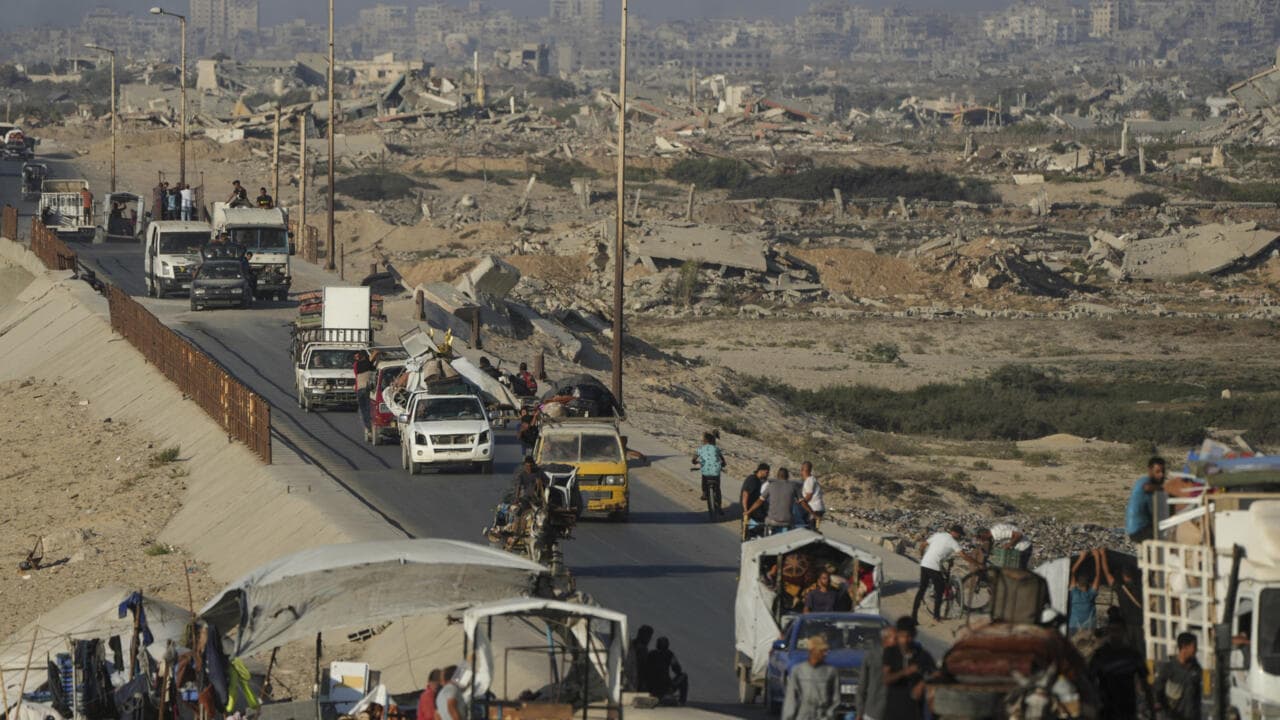An Israeli strike on Saturday destroyed a second high-rise in Gaza City in as many days, levelling the 15-storey building.
"A short while ago, the IDF (Israeli Defence Forces) struck a high-rise building that was used by the Hamas terrorist organisation in the area of Gaza City," the Israeli military said in statement.
Witnesses identified the building as the Al-Sussi Tower, with videos shared online showing the structure collapsing. The Al-Susi was a residential building housing many displaced Gazans, according to Gaza City residents.
Defence Minister Israel Katz on Saturday posted a clip of the Al-Susi Tower collapsing on X with the message,"We're continuing".
The strike came just hours after the Israeli army urged Gaza City residents to leave for a"humanitarian zone" in the south.
In a message to the city's residents posted on social media, army spokesman Avichay Adraee said:"Take this opportunity to move early to the (Al-Mawasi) humanitarian zone and join the thousands of people who have already gone there."
The UN estimates there are about a million people in and around Gaza City, and has warned of a coming"disaster" if the Israeli military goes ahead with its plans to seize the city.
In a separate statement Saturday, the military said the humanitarian zone in the south had essential"infrastructure such as field hospitals, water pipelines, and desalination facilities, alongside the continued supply of food, tents, medicines, and medical equipment".
Israel first declared Al-Mawasi a safe zone early in the war, which was triggered by Hamas's October 7, 2023 attack.
However, the army has carried out numerous bombings in the area since then, saying it was targeting Hamas fighters hiding among civilians.
Dozens of Palestinians interviewed by AFP in Gaza City in recent weeks have said there is"no safe place" in the territory, with many saying they would rather die than be displaced again.
"Some say we should evacuate, others say we should stay," said Abdel Nasser Mushtaha, 48.
"But everywhere in Gaza there are bombings and deaths" he added, pointing, in particular, to the strikes on Al-Mawasi.
"It no longer makes any difference to us," said his daughter Samia Mushtaha, 20."Wherever we go, death pursues us, whether by bombing or hunger."
Tens of thousands of Israeli reservists called up for Gaza operation
The Israeli military has been carrying out heavy strikes on Gaza City for weeks, advancing through outer suburbs, and this week forces were within a few kilometres of the city centre.
Prime Minister Benjamin Netanyahu, backed by his right-wing coalition allies, ordered the capture of Gaza City against the advice of Israel's military leadership, according to Israeli officials. Despite its hesitation, the military has called up tens of thousands of reservists to support the operation.
The war in Gaza has increasingly left Israel diplomatically isolated, with some of its closest allies condemning the campaign that has devastated the Palestinian enclave.
There are also growing calls within Israel, led by families of hostages and their supporters, to end the war in a diplomatic deal that would secure the release of the remaining 48 captives.
Israeli officials believe 20 of the hostages are alive.
On Friday, Hamas released a video of two hostages calling on Netanyahu to not to carry out the planned offensive on Gaza City.
Netanyahu is pushing for an all-or-nothing deal that would see all of the hostages released at once and Hamas surrendering.
Israeli military officials say they have killed many of Hamas' key leaders and thousands of its fighters, reducing the Palestinian militant group to a guerrilla force.
Hamas has offered to release some hostages for a temporary ceasefire, similar to terms that were discussed in July before negotiations mediated by the US and Arab states collapsed.
The group, which has ruled Gaza for nearly two decades but today controls only parts of the enclave, has long said it would release all hostages if Israel agreed to end the war and to withdraw all its forces from Gaza.
Most of the hostages who have been freed were released through diplomatic negotiations mediated by the US and Arab states. The last talks broke down in July, and Israel and Hamas have accused each other of negotiating in bad faith.

